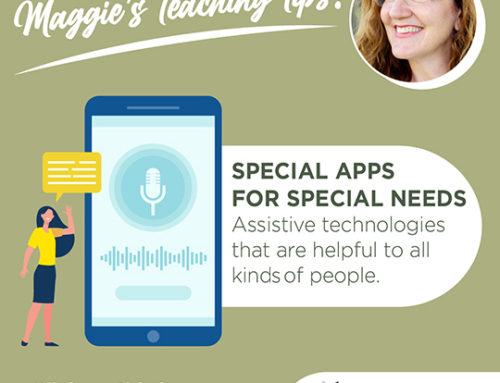As we accompany our students through this difficult time, they accompany us too!

et me start by saying that I am in total awe of all the teachers who have show up, day in and day out, to educate kids over this entire, long school year.
I’ve been so impressed with the thousands of teachers who are posting images of their classrooms online, covered in plastic with disinfectant in hand. No one had any idea how to handle all of this a year ago. But YOU, the teachers figured it out. You converted your entire curriculum from one day to the next. You probably had little to no guidance, but you showed up and did it anyway.
I read a tweet the other day that shook me. A teacher said “could we please stop using war terminology to describe the teaching process??”. That, after he read that “teachers are on the front lines”, and how they are “fighting”, “defending” and “attacking” the situation. These truly are extraordinary times.
So now that the year is coming to an end, what advice can I offer you? What reflections can we make about this crazy year?
First of all, I would admit that I’m only human.
I am one person, and I can only do so much. Often, teachers suffer greatly from the “I could do more if I had more time” syndrome. Well, you know what, no you can’t. You already work your ass off, and you need to have a personal life filled with family, friends and downtime as well. So start by recognizing your hard work, your dedication and everything you have done so far.
Second, focus on what is truly important.
No matter what age you teach, focus on your relationships with your students because they truly need the social interaction and the community that a school provides. I read an article in the NYTimes yesterday describing the rising rates of depression in young adults due to the pandemic. So, when we see this type of societal suffering, we have to remember that our jobs have as much to do with the humans we teach, as the subject matter we teach.
Third is to only focus on the core principals of your subject matter.
I’m sure Administrators don’t want to hear me say this, but let’s admit it, we didn’t get through our curriculum this year. If I were you, I would take a look at your entire curriculum plan, and ask yourself “what do they truly need to know?” or “what do they typically remember 5 years down the line?” and reduce it to that.
That reminds me of a story …..
I met a math teacher at a conference many years ago. We were discussing how she made the decision years before, to teach at the pace she felt the students needed in order to truly understand the information. She did not try to make it through a list of topics on her curriculum plan, because she knew that it was almost impossible anyway.
The interesting part of her story is that she taught a course that had a national standardized test at the end that DID cover a very specific set of concepts. Most teachers in her shoes would do their best to cover the material that is going to be on the exam, even if they have to rush through some of it at the end of the year. The idea is that you want to give the students a fighting chance on the test.
Well, in her own very unscientific study, she swore that her students did better on the test without having covered all the curriculum content because they thoroughly understood the concepts that she did cover. So they performed better on the test in the content areas they were familiar with, and the concepts that they were not familiar with as well. Apparently, the skills they acquired by thoroughly understanding the previous concepts aided them in deciphering the questions on the test they had never seen before.
I mention that story to show you that it’s not always so important to cover a wealth of concepts, vocabulary, dates, names or formulas. Sometimes it’s more important to just show up and listen to your students, and teach them a few things along the way. Quality teaching over quantity… you get the idea.
So it all comes down to this:
We need to accompany our students through this difficult time, because let’s face it, they accompany us too! Let’s give them the community and positive relationships they need first, and the content of our classes second. The support and kindness we offer them now will transfer to healthier kids with better problem solving and decision making skills in the future.
Plus, it’s just the right thing to do.
Want a Free Online Teaching Guide?
5 Simple Ways to Improve Online Teaching
Just subscribe below.
You can unsubscribe from the list at any time






Absolutely true, thanks for your words, Maggie